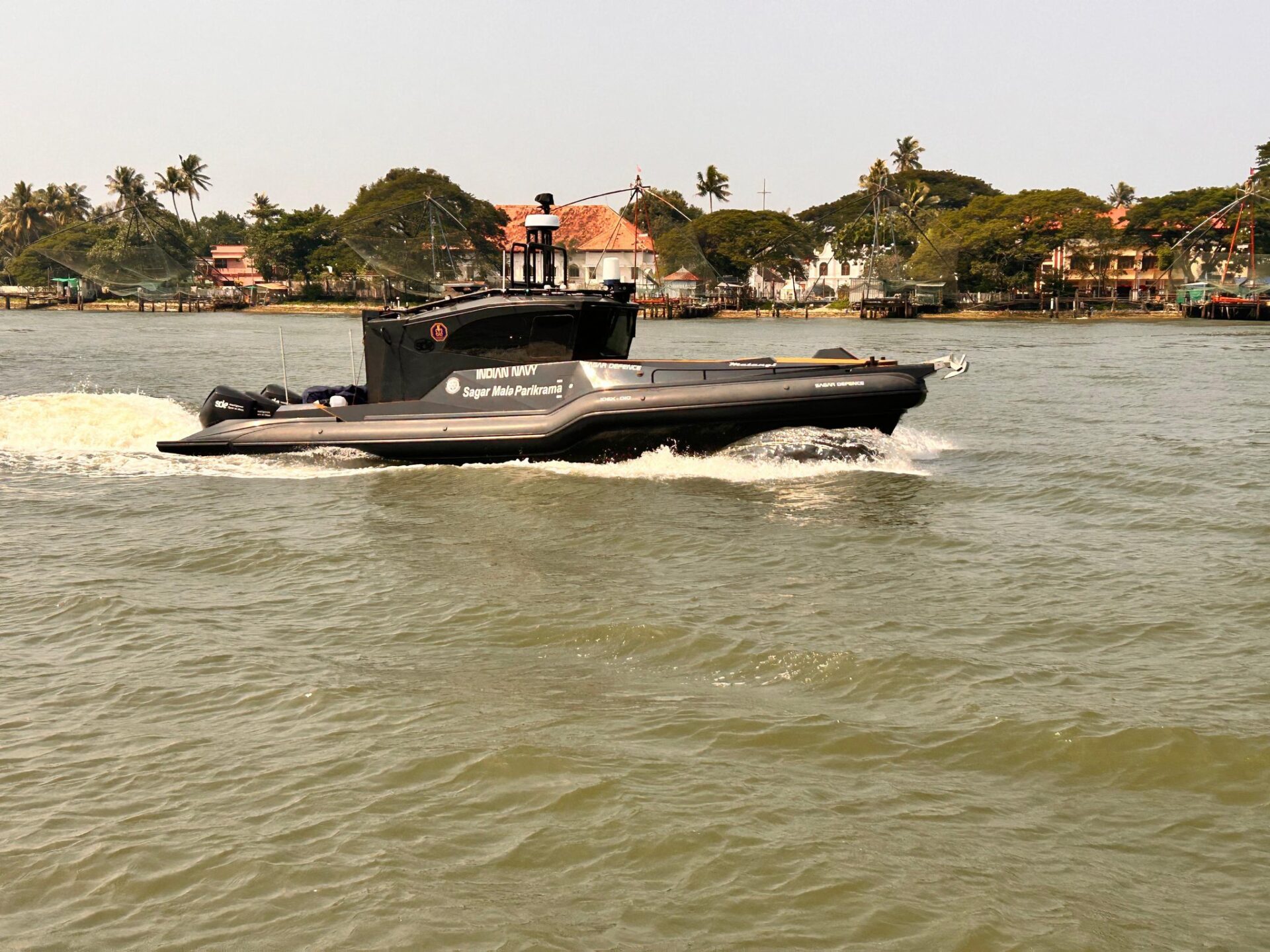India has taken a giant leap in maritime technology with the successful completion of a historic 1,500-kilometer voyage by an indigenous autonomous surface vessel. Developed by Sagar Defence Engineering, the vessel embarked on this pioneering journey from Mumbai to Thoothukudi without any human intervention.
This remarkable achievement underscores India’s growing prowess in autonomous systems and its commitment to self-reliance in defense technology. The successful voyage not only showcases the maturity of India’s technological capabilities but also opens up new possibilities for the future of maritime operations. The autonomous vessel christened ‘Sagarmala Parikrama,’ was virtually flagged off on October 29, 2024, during the Swavlamban event hosted by the Navy’s Naval Innovation and Indigenization Organisation (NIIO). This milestone is a testament to the collaborative efforts of the Indian Navy and the private sector in advancing India’s maritime capabilities.
The successful completion of this voyage has far-reaching implications for India’s maritime security and economic interests. Autonomous vessels have the potential to revolutionize maritime operations, from surveillance and reconnaissance to logistics and transportation. They can be deployed in hazardous conditions, reducing the risk to human life and enhancing operational efficiency. As India continues to strengthen its maritime capabilities, the development of autonomous systems will play a critical role in securing its maritime borders and safeguarding its maritime interests. This historic voyage is a significant step towards realizing India’s vision of becoming a global maritime power.


